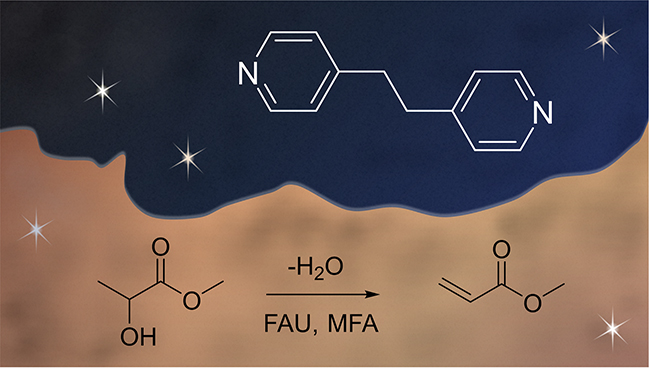Many industrial and consumer products are made with a material called acrylic acid. This chemical and associated materials called acrylates are used in paints and coatings, non-stick surfaces, and the superabsorbent material used in diapers. They are normally made from fossil fuels.
Researchers are investigating the use of corn to create useful chemicals that can be used in industry. One such chemical is lactic acid, which is used for compostable plastics. Lactic acid can also be converted, via catalysis, to acrylic acid and acrylates. However, the catalysts currently available are expensive and inefficient.
In a breakthrough published in the Journal of the American Chemical Society Gold, MSI PI Paul Dauenhauer (professor, Chemical Engineering and Materials Science; Director, Center for Programmable Energy Catalysis) and colleagues have developed a new catalyst that is considerably more effective at converting lactic acid to acrylic acid. This reduces the cost of creating sustainable acrylic acid and acrylates. The paper can be found on the journal website: Yutong Pang, ChoongSze Lee, Bess Vlaisavljevich, Christopher P. Nicholas, Paul J. Dauenhauer. Multifunctional Amine Modifiers for Selective Dehydration of Methyl Lactate to Acrylates. Journal of the American Chemical Society Gold January 9 (2023). doi: 10.1021/jacsau.2c00513. A story about the research appears on the U of M News webpage: Chemical researchers discover catalyst to make renewable paints, coatings, and diapers.
This research was supported by the NSF Center for Sustainable Polymers (CSP), whose members seek to discover ways to develop polymers from renewable sources that can be used in a wide range of applications. Professor Dauenhauer, who is a member of the CSP and the , uses MSI systems for calculations of intermediate energies as part of research into catalytic conversion of sugars and other biomass-derived compounds.
Image credit: Y. Pang et al. Journal of the American Chemical Society Gold January 9 (2023). doi: 10.1021/jacsau.2c00513.
